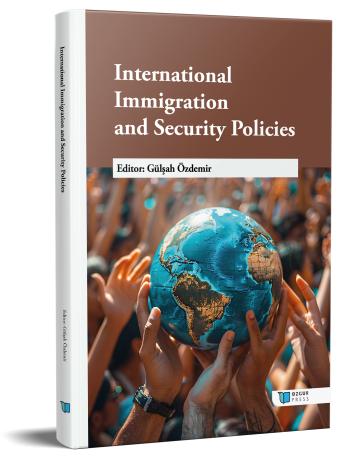
Immigration, Epistemic Violence and Ontological Security: The Crisis of Knowledge and Belonging
Şu kitabın bölümü:
Özdemir,
G.
(ed.)
2025.
International Immigration and Security Policies.
Özet
Throughout history, people have demonstrated various forms of mobility. One of these is migration. Today, it is estimated that over 100 million people in the world are migrants. However, if we take the Turks as an example, they live thousands of kilometres away from their first homeland. The same phenomenon is also valid for many nationalities and societies that give names to the geography they live in today. The most frightening thing for an immigrant is the feeling of uncertainty. For example, the French Protestants who immigrated to Geneva and London in the 16th century turned these two cities into the world's leading clock manufacturing centres, while the Germans had the same influence in the United States in optics and piano making. A similar example can be seen in the fact that the community called Malakan, who were settled in and around Kars during the occupation years between 1877 and 1914 by the Russians, taught the local people especially in the production of kashar cheese and today Kars Kashar has a brand value. When it comes to migration, only physical migration comes to mind. However, for a long time, especially with the framework of thought called Eurocentrism, non-Western societies have been subjected to migration and even deportation, so to speak, from the history of civilisation. In a period often described today as ‘an age of anxiety, anger and nonsense’, migration has become a reflection of the contemporary crisis. Migration is not only a physical act, but also an epistemic, ontological and psychological upheaval. The experience of migration causes individuals to be cut off from their knowledge systems, cultural meaning frames and identity continuities, while in host societies it leads to the questioning of collective belonging and identity integrity. While the process of modernisation has created an effect that can be called a civilisational leap for the West, it has caused an intellectual deportation and psychological collapse in non-Western societies. For this reason, it has been like a drug with serious side effects in non-Western societies, and the question of what these side effects are is still a problem among the intellectuals of these societies. In these societies, which have entered an existential crisis in the history of civilisation, ontological security has become the main problem. This constant tension has become a traumatic process in many non-Western societies, including Turkey. This situation has turned into a crisis of meaning, a crisis of identity and above all a crisis of belonging.

